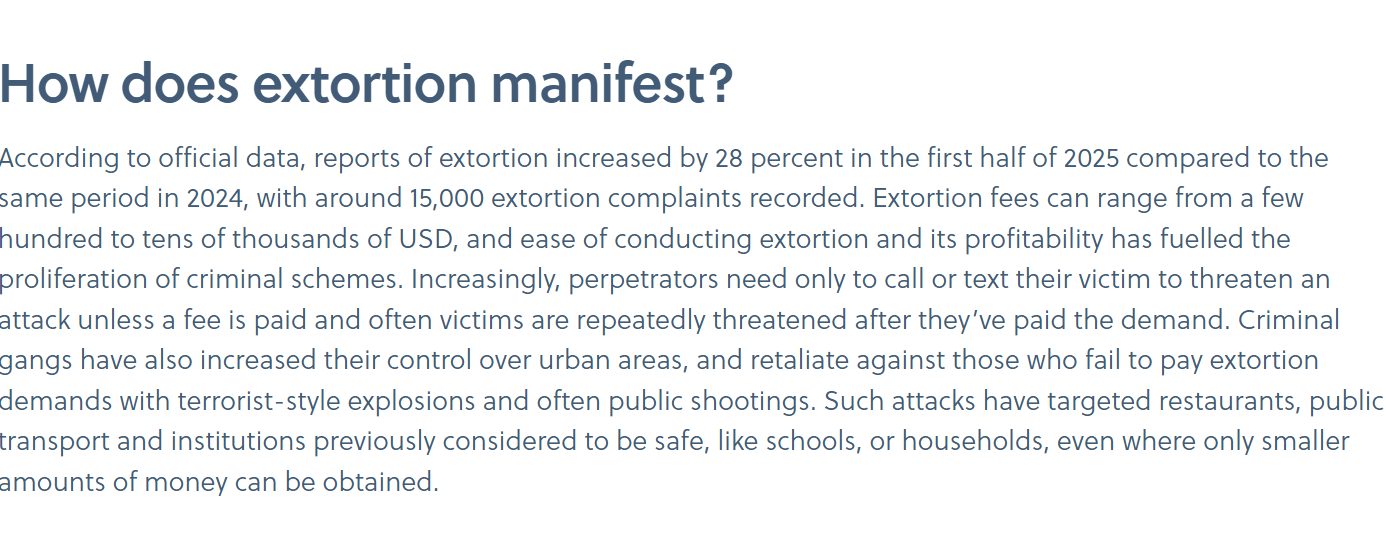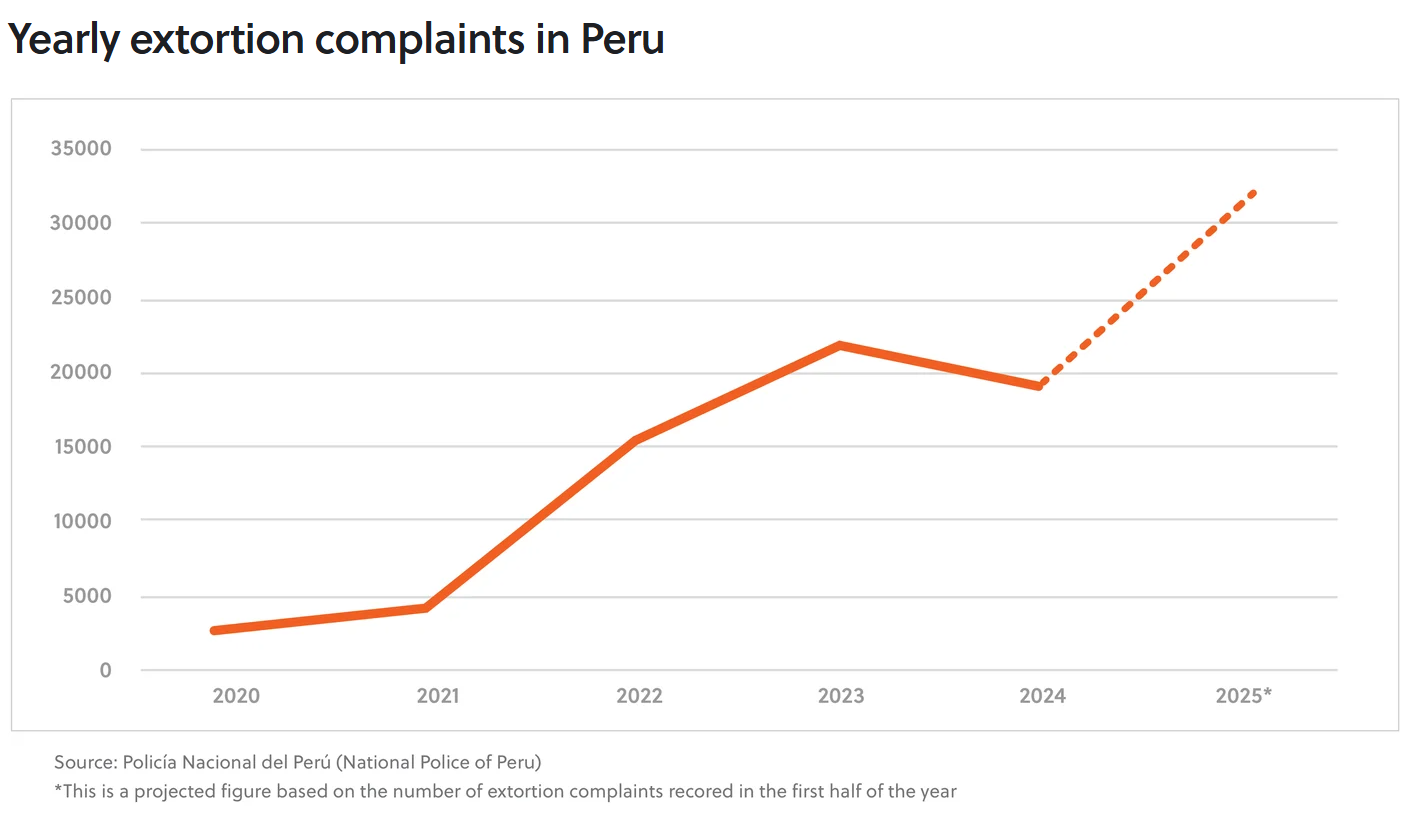The price of fear: Extortion in Peru
Over the past year, several high-profile incidents of extortion have resulted in often brazen and violent retaliatory attacks, triggering countrywide strikes and demonstrations. While the government has attempted to respond by introducing numerous states of emergency, this strategy has so far failed to improve the security environment. With former President Dina Boluarte impeached on 9 October 2025 for failure to curb rising criminality, among other issues, the threat posed by extortion is likely to be a key concern for ordinary people and businesses as the country approaches general elections in April 2026.


Conditions enabling extortion
Extortion rackets have been driven by the presence of both large and transnational criminal organisations, like Tren de Aragua, as well as a plethora of other smaller drug trafficking and criminal organisations which have sprung up. These groups often pose as more notorious syndicates, colluding with each other or competing for control of Peru’s illicit economies. But the current crisis has not emerged in a vacuum. The Peruvian government is limited in its capacity to respond to organised criminality as a result of entrenched corruption that has eroded checks and tools for prosecution, with reports of political figures colluding with criminal actors. While some members of Congress have been charged with participating in criminal schemes, lawmakers have also introduced legislation restricting investigations into corruption and extortion, and removed functions from the Attorney General’s Office to instead increase the role of police in criminal investigations, reducing the efficacy of the Attorney General’s Office in its investigating capabilities. Critics claim these policy changes have decreased the efficiency and integrity of corruption or extortion investigations. Ultimately, the state capacity to prosecute organised crimes has been significantly undermined by public officials looking to protect themselves.
The threat to commercial operations
Extortion has hit both small and larger commercial operations, with business owners indicating their losses from extortion have increased by 15 percent to 30 percent over the past few years. The financial impact has driven frequent and countrywide strikes, particularly in the transport sector, to demand the government take action to tackle worsening criminality. The strikes have prompted severe commercial disruptions across the country, with the government often pre-emptively encouraging people to work from home where possible. Protesters have been calling for the resignation of Boluarte. While her impeachment may ease some of these frustrations in the short term, lingering corruption in the government is likely to continue to drive demonstrations.
Undermining political stability
The situation bears much similarity to the 2021 election, where voters frustrated with the government for its perceived mishandling of Covid-19 elected Pedro Castillo, an outsider with no government experience and no clear plan for leading the country. Pedro was ultimately ousted in December 2022, after he attempted to avoid a third impeachment vote and announced his intention to suspend Congress and rule by decree. He was subsequently impeached and arrested. Boluarte, then his vice president, took office.
The 2026 general election comes in the context of a crisis that many regard the state as being unable to solve. While new President José Jerí has signalled his intent to declare war on crime, it is so far unclear what this will entail. Rising crime is likely to remain a key voter concern ahead the of elections, with an unconventional or even militarised response to tackling organised crime likely to gain popularity. Yet, without a proposal for clear and comprehensive political reform that reduces organised crime’s influence in the country’s political bodies, the election of a candidate who lacks long-term proposals to improve the situation threatens to restart a similar cycle of a candidate elected based on short-term promises of quick fixes. In the meantime, fear and frustration over extortion is likely to continue to drive strikes and demonstrations that in turn prompt further commercial disruptions.
